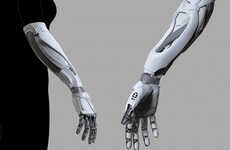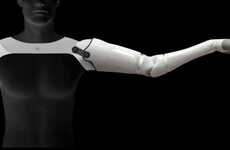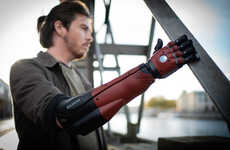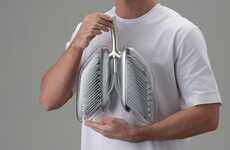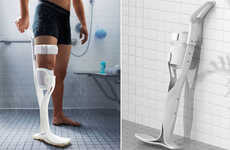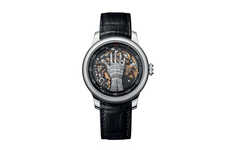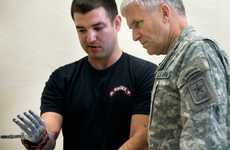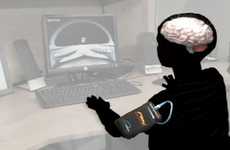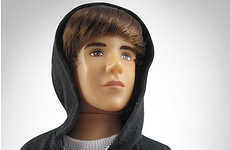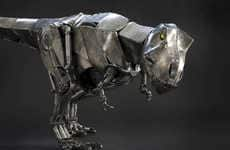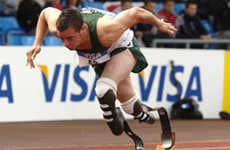
The Sun Jifa Bionic Arms are a Handy Invention
Cody Turner — September 10, 2012 — Unique
References: dailymail & odditycentral
A Chinese man who lost his arms in an accident has spent eight years building the Sun Jifa Bionic Arms out of scrap metal.
Sun Jifa is a 51-year-old man from Guanmashan, northern China, who lost both of his hands when a homemade fish-blasting bomb went off prematurely. Unable to afford the prosthetic arms the hospital could provide, Sun Jifa spent the last eight years developing prototypes before deciding on his current bionic arms made from scrap metal. The arms work using a series of wires and pulleys inside the arm shell.
“The only drawback is that steel is quite heavy so they’re tiring to wear and get hot or cold in the extremes of summer and winter,” explained Sun. He plans on developing his design for others without the use of arms. Sun mentions, “I made this from scrap metal for virtually nothing. There is no need to pay hospitals a fortune.”
Sun Jifa is a 51-year-old man from Guanmashan, northern China, who lost both of his hands when a homemade fish-blasting bomb went off prematurely. Unable to afford the prosthetic arms the hospital could provide, Sun Jifa spent the last eight years developing prototypes before deciding on his current bionic arms made from scrap metal. The arms work using a series of wires and pulleys inside the arm shell.
“The only drawback is that steel is quite heavy so they’re tiring to wear and get hot or cold in the extremes of summer and winter,” explained Sun. He plans on developing his design for others without the use of arms. Sun mentions, “I made this from scrap metal for virtually nothing. There is no need to pay hospitals a fortune.”
Trend Themes
1. Scrap Metal Prosthetics - Opportunity for disruptive innovation in the field of prosthetics by creating affordable and customizable options using scrap metal.
2. DIY Medical Solutions - Potential for disruptive innovation in the healthcare industry through the development of DIY medical devices and equipment using readily available materials.
3. Low-cost Assistive Technology - Opportunity for disruptive innovation in assistive technology sector by creating low-cost solutions for individuals with disabilities.
Industry Implications
1. Prosthetics - Opportunity for innovative advancements in the prosthetics industry by incorporating scrap metal materials into the design and manufacturing process.
2. Healthcare - Disruptive innovation potential in the healthcare industry through the development of low-cost, DIY medical solutions.
3. Assistive Technology - Opportunity for disruptive innovation in the field of assistive technology by creating affordable and accessible devices for individuals with disabilities.
4.1
Score
Popularity
Activity
Freshness

